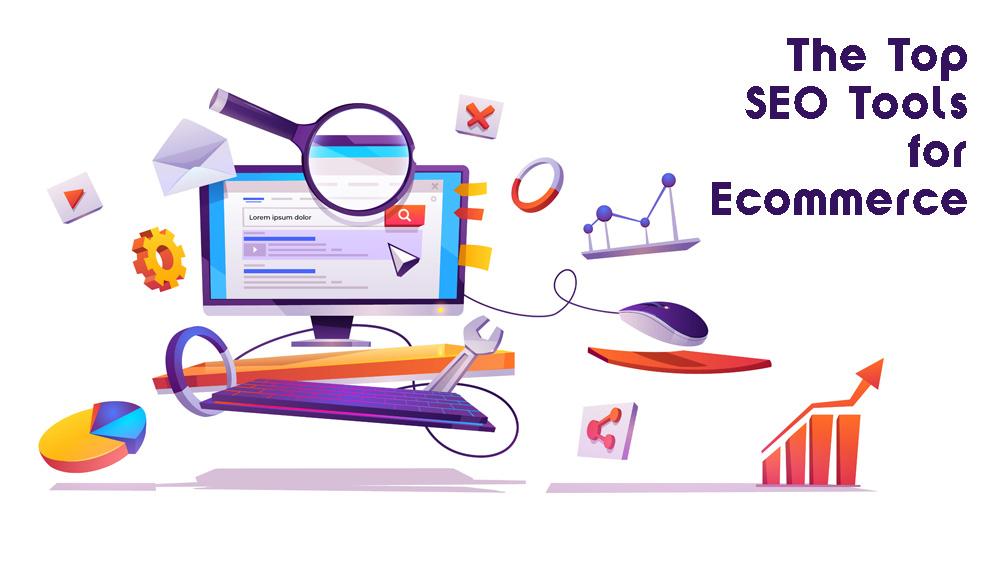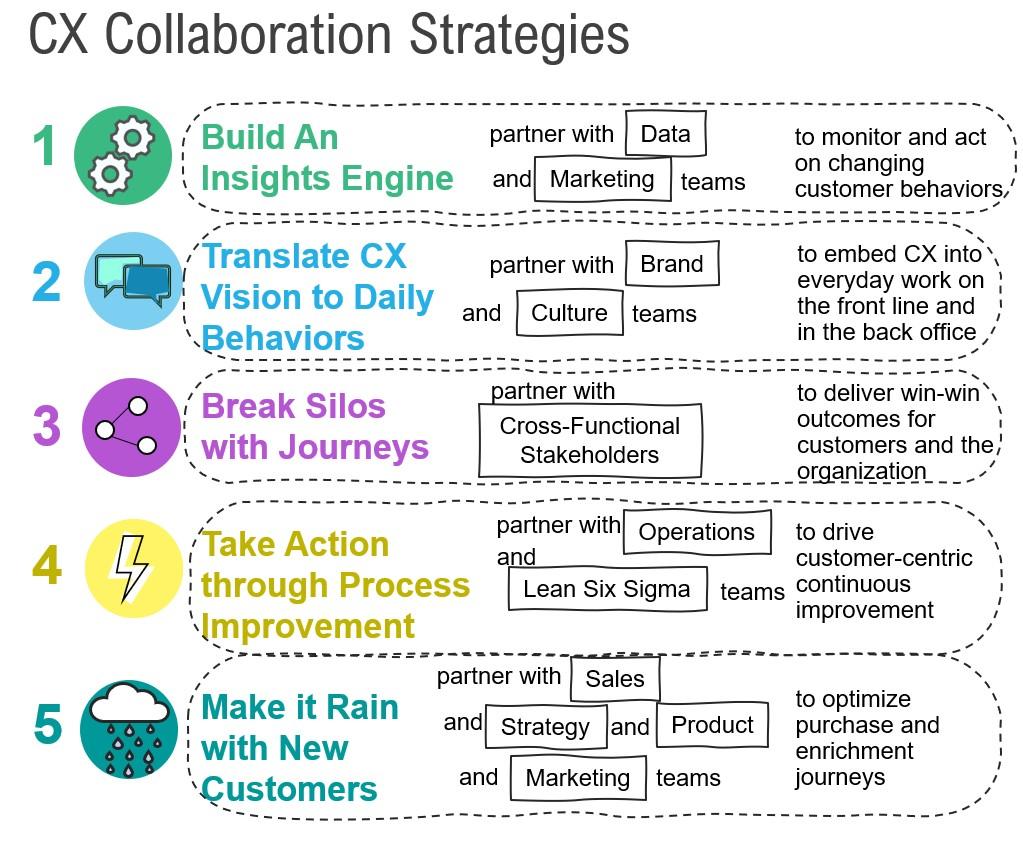In today’s digital landscape, having a stellar online store is just the beginning. If you want your products to shine amid the sea of competition, mastering eCommerce SEO is essential. but where do you start? Enter the world of eCommerce SEO tools—a treasure trove of resources designed to elevate your website’s visibility, drive more traffic, and ultimately boost your sales. Whether you’re a seasoned merchant or just starting your online journey, the right tools can make all the difference. In this article, we’ll explore the 12 best eCommerce SEO tools that can supercharge your online store rankings.Get ready to unlock the secrets to attracting more customers and turning clicks into cash!
Understanding the importance of SEO in ECommerce Success
In the competitive landscape of eCommerce, having a visually appealing website is just the tip of the iceberg. To truly thrive, your online store needs to be easily discoverable by potential customers, and that’s where search engine optimization (SEO) comes into play.A solid SEO strategy can significantly enhance your store’s visibility, driving organic traffic and ultimately boosting sales.
SEO involves optimizing various elements of your website so that it ranks higher in search engine results pages (SERPs). This includes:
- Keyword Research: Understanding what your target audience is searching for is foundational. Tools that help with keyword analysis can uncover high-traffic terms relevant to your products.
- On-Page Optimization: This involves fine-tuning your website’s content, meta tags, and images for enhanced visibility. Employing the right tools can streamline this process.
- Technical SEO: Ensuring your website is technically sound (fast loading times, mobile-friendliness, etc.) is crucial. The right diagnostic tools can help identify areas for betterment.
Moreover, SEO is not a one-time task; it’s an ongoing strategy. Regularly updating your content, refreshing your keyword strategy, and analyzing the effectiveness of your efforts is vital in maintaining a strong online presence.Utilizing eCommerce-specific SEO tools can provide insights and automation to keep your store at the forefront of search results.
Investing in the right SEO tools can yield high returns. For example, you may find that:
| Tool Name | Key Feature | Benefit |
|---|---|---|
| SEMrush | comprehensive Keyword Research | Identifies the best keywords for targeting. |
| Ahrefs | Backlink Analysis | Helps improve domain authority. |
| Yoast SEO | On-Page optimization | Guides content optimization for better ranking. |
The synergy between SEO and eCommerce cannot be overstated. It not only aids in attracting potential customers but also in retaining them through a seamless online experience. By maximizing your SEO efforts, you enhance your brand’s credibility and influence in the marketplace, turning curious visitors into loyal customers.
Key Features to Look for in Ecommerce SEO Tools
when selecting the right ecommerce SEO tools for your online store, it’s essential to focus on features that can significantly enhance your visibility and drive traffic. Look for tools that offer comprehensive keyword research capabilities.Keyword research is the backbone of any accomplished SEO strategy, allowing you to identify what your potential customers are searching for and how to position your products effectively in search engine results.
Another crucial feature is on-page optimization analysis. This involves tools that can evaluate your product pages, blog posts, and category pages for SEO best practices.these tools can provide insights on optimizing title tags, meta descriptions, headers, and content to ensure you’re aligned with search engine algorithms.
Don’t overlook the importance of site audit functionality. A good ecommerce SEO tool should be able to perform regular audits of your entire website, identifying issues like broken links, duplicate content, and slow loading times. These factors can significantly affect your site’s rankings and user experience. By addressing these issues proactively, you can maintain a healthy online store that ranks higher in search results.
Consider tools that offer competitor analysis features as well. Understanding what your competitors are doing well can provide valuable insights into your own strategies. Look for tools that track competitor keywords, backlink profiles, and overall performance metrics.This can help you identify gaps in your own approach and capitalize on missed opportunities.
| Feature | Importance |
|---|---|
| Keyword Research | Identifies search terms for targeting |
| on-Page Optimization | Enhances content for better rankings |
| Site Audits | Finds and fixes SEO issues |
| Competitor Analysis | Offers insights to improve strategies |
| Backlink Tools | Strengthens site authority and traffic |
Lastly, user-pleasant reporting and analytics features are essential. Being able to track your progress in a straightforward way helps you understand the effectiveness of your SEO strategies. Look for tools that provide clear,actionable insights and allow you to easily share reports with your team. With these key features in mind, you’ll be well-equipped to choose the right ecommerce SEO tools that can truly elevate your online store’s performance.
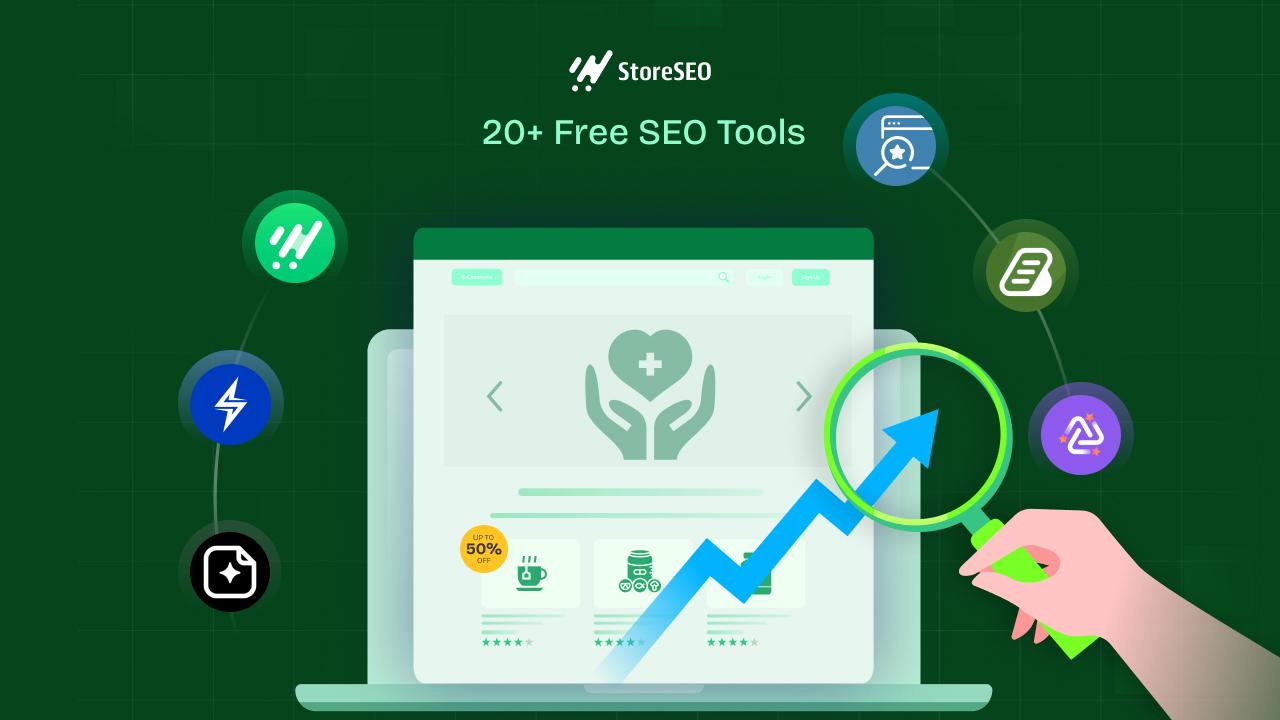
Unveiling the Top Ecommerce SEO Tool for Keyword Research
when it comes to eCommerce,having the right keywords in your arsenal can make all the difference in driving traffic and boosting sales. Among the myriad of tools available, one stands out for its comprehensive approach to keyword research: Ahrefs. This powerhouse offers a suite of features that are invaluable for anyone looking to optimize their online store’s performance.
Why Ahrefs? the tool’s extensive database makes it a go-to for uncovering high-volume,low-competition keywords tailored specifically to your niche. It doesn’t just stop at surface-level data; Ahrefs dives deep into keyword difficulty, search volume, and even potential traffic estimates.This means you can make informed decisions about which keywords to target, ensuring that your SEO efforts yield tangible results.
One of the standout features is the Keyword Explorer, which provides insights not only on standard keywords but also on questions and related terms that potential customers might be searching for. This can help you create content that resonates with your audience, making it more likely that they’ll choose your store over competitors.
Ahrefs also excels in its site audit capabilities,allowing you to analyze your existing content and identify areas for improvement. By pinpointing underperforming pages, you can tweak your keyword strategy to enhance visibility and drive more organic traffic. plus, with features like Content Explorer, you can see what types of content are performing well in your industry, giving you inspiration for your own blog posts or product descriptions.
For those who love visual data,Ahrefs delivers with its user-friendly interface and interactive charts. You can easily track your keyword rankings over time, allowing you to measure the effectiveness of your strategies and make adjustments as needed. The ability to monitor competitors’ keywords also provides a strategic advantage, letting you identify gaps in your own offerings.
To summarize, if you’re serious about elevating your eCommerce store’s visibility, investing in a robust keyword research tool like Ahrefs is essential. Its combination of powerful features, in-depth analysis, and user-friendly design makes it a top choice for eCommerce businesses looking to outshine the competition.
How to Optimize Your product pages with the Right Tools
Optimizing product pages is essential for improving your online store’s visibility and driving sales. With the right tools at your disposal,you can enhance every aspect of your product pages,from keyword optimization to user experience. Hear are some effective strategies to consider:
- Keyword Research: Utilize tools like SEMrush or Ahrefs to find high-value keywords relevant to your products. Incorporate these keywords naturally into your product titles, descriptions, and metadata.
- Image Optimization: Tools like TinyPNG can definately help compress images without sacrificing quality. This not only improves loading times but also enhances user experience, leading to lower bounce rates.
- SEO Audits: Conduct regular SEO audits using tools like Moz or Screaming Frog. These tools will identify broken links, missing alt tags, and other issues that could hinder your page’s performance.
Another crucial element is the structure of your content. Search engines favor well-organized pages with clear, concise details. Consider implementing the following:
| Page Element | Best Practices |
|---|---|
| product Titles | Include primary keywords and be descriptive. |
| Meta Descriptions | Write compelling summaries that entice clicks, keeping it under 160 characters. |
| Product Descriptions | Use unique, engaging content that highlights features and benefits. |
don’t overlook the power of customer reviews and ratings. Tools such as Yotpo or Trustpilot help you gather and display social proof on your product pages. Positive reviews not only build trust but also contribute to higher search rankings. Additionally, make sure to leverage structured data markup to enhance how your products appear in search results.
Lastly, consider using heatmap tools like Hotjar or crazy Egg to analyze user behavior on your product pages. Understanding how customers interact with your site can uncover opportunities for improvement.Whether it’s adjusting layout, changing call-to-action buttons, or simplifying navigation, these insights can lead to a more effective shopping experience.
By employing the right tools and strategies, you can effectively optimize your product pages, boost your online store rankings, and ultimately drive more sales. It’s all about creating a seamless experience for your visitors, ensuring they find what they’re looking for quickly and easily.
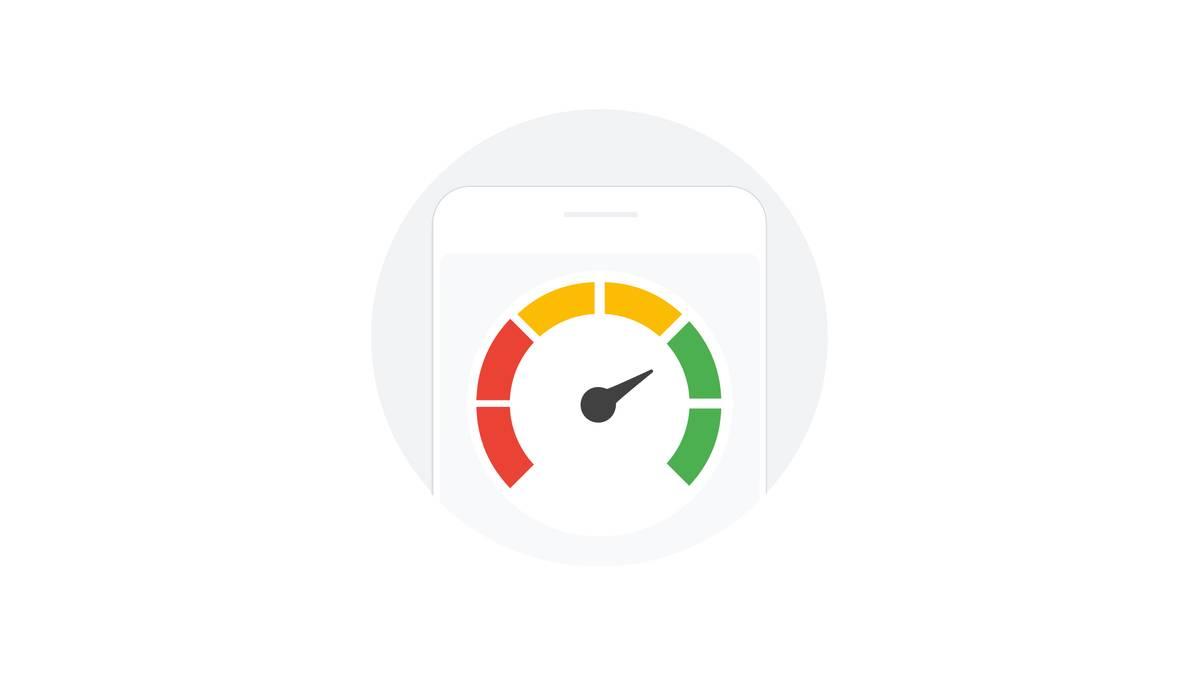
Boosting Your Site’s Speed and Performance for Better Rankings
One of the most crucial aspects of successful ecommerce is ensuring that your site loads quickly and runs smoothly. Search engines like Google prioritize fast-loading websites in their rankings, so taking steps to enhance your site’s speed can significantly impact your visibility. here are some effective strategies to supercharge your online store’s performance:
- Optimize Images: Large image files can drastically slow down your website. Utilize tools like TinyPNG or Kraken.io to compress images without sacrificing quality.
- Leverage Browser Caching: By enabling caching, you allow visitors’ browsers to store certain elements of your site. This means that repeat visitors can access your site faster,improving their overall experience.
- Minimize HTTP Requests: Each element on your page requires a request to the server. Reduce these requests by streamlining your design or combining files where possible.
- Utilize a Content Delivery Network (CDN): CDNs distribute your content across various international servers, ensuring that users access your site from the closest location, resulting in faster load times.
- Implement lazy Loading: This technique allows images and videos to load only when they enter the viewport of the user, significantly improving initial load times.
Moreover, it’s essential to regularly assess your site’s performance using tools like Google PageSpeed Insights or GTmetrix. These platforms provide valuable insights and suggestions tailored to your specific site’s needs. Here’s a simple table that outlines some of the top tools you can use for monitoring your site’s speed:
| Tool Name | Key Feature |
|---|---|
| Google PageSpeed Insights | Detailed speed analysis and optimization suggestions. |
| GTmetrix | comprehensive performance reports with actionable insights. |
| Pingdom | User-friendly interface and monitoring capabilities. |
| WebPageTest | Advanced testing features with various geographical locations. |
Lastly, never underestimate the impact of a well-structured website. A clean and organized layout not only enhances user experience but also contributes to faster loading times. Consider simplifying your navigation and minimizing the number of plugins used, as excessive plugins can bloat your site and slow it down. Remember, a fast and efficient online store isn’t just beneficial for SEO; it’s also key to retaining customers and encouraging repeat visits.
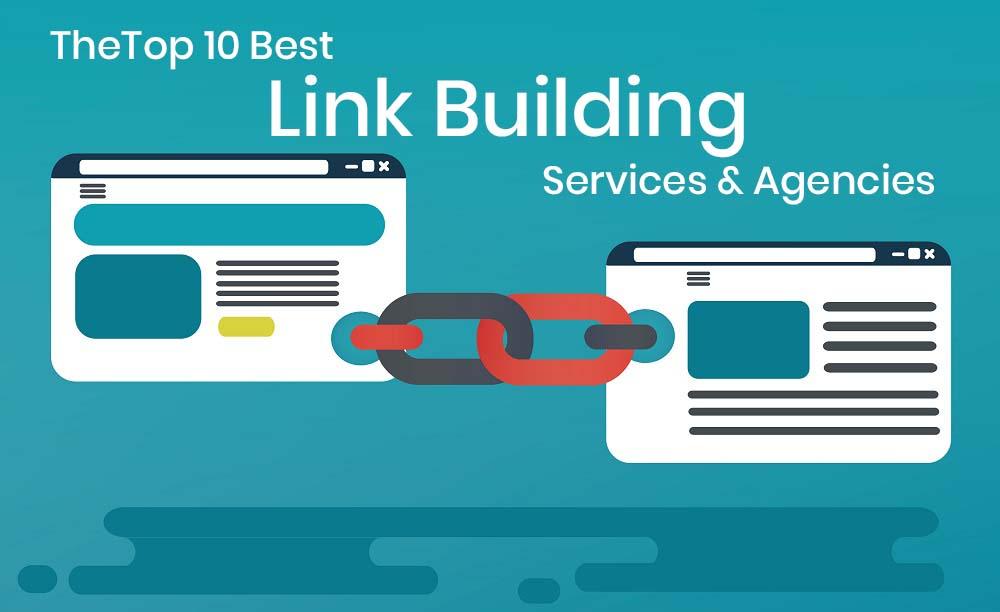
Mastering Backlink Building with Effective SEO Solutions
Building high-quality backlinks is a cornerstone of any successful SEO strategy, especially in the competitive world of eCommerce.By linking to reputable websites and getting them to link back to you,you enhance your site’s authority and visibility in search engine results. here are some effective strategies to master the art of backlink building:
- Guest blogging: Contributing to other blogs in your niche not only gets your name out there but also allows you to include backlinks to your store.
- Creating Shareable Content: Infographics, how-to guides, and videos that provide value are often shared and linked back to, driving traffic to your site.
- Engaging with Influencers: Partnering with influencers in your industry can lead to backlinks from their high-traffic sites, boosting your visibility.
- Utilizing Social Media: Sharing your content on platforms like Twitter, Facebook, and LinkedIn can generate organic backlinks as your network shares your posts.
Understanding your competitors’ backlink strategies can also be invaluable. By analyzing their profiles, you can uncover opportunities that you may have overlooked. Tools like Ahrefs and SEMrush allow you to dive deep into competitor backlinks, revealing where they’re getting their links and how you can approach those sources.
| Tool | Key Feature | Best For |
|---|---|---|
| Ahrefs | Comprehensive backlink analysis | Understanding competitor strategies |
| SEMrush | Domain vs. Domain comparison | Identifying high-value link opportunities |
| Moz | Link building tools and metrics | Tracking link quality |
never underestimate the power of local backlinks. If you run an eCommerce business with a physical presence, local listings and partnerships can significantly enhance your backlink profile. Consider reaching out to local bloggers, news sites, and community organizations to collaborate and earn those valuable local links.
With a well-rounded approach to backlink building, enhanced by the right SEO tools, you can elevate your online store’s rankings and ultimately drive more sales. Remember, consistent effort in nurturing relationships and creating quality content will yield the best results over time.
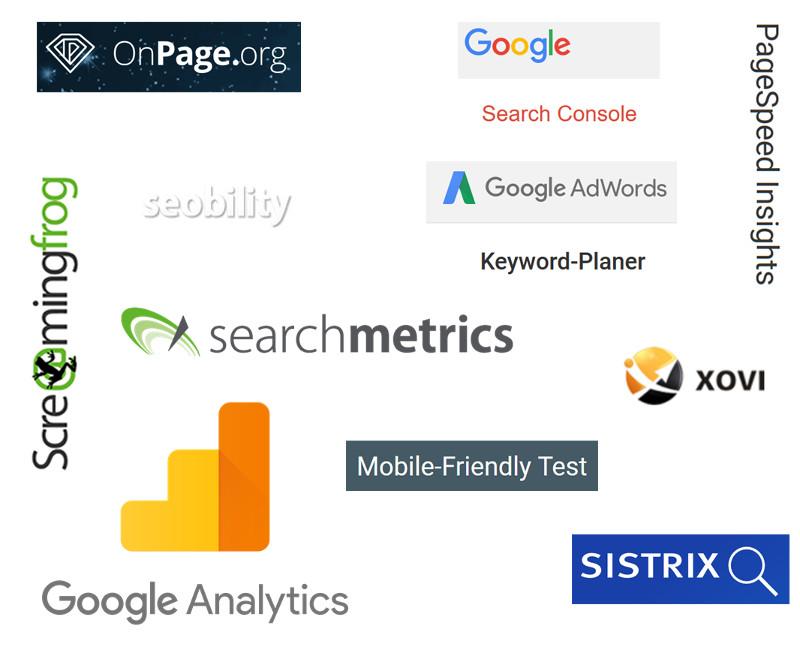
Improving Your Content Strategy Using SEO Tools
Implementing an effective content strategy is crucial for any online store aiming to improve visibility and drive sales. By integrating SEO tools into your approach, you can refine your content, ensuring it resonates with both search engines and your target audience. Here are some ways to leverage SEO tools for content improvement:
- Keyword Research: Utilize tools like SEMrush or Ahrefs to uncover high-volume, low-competition keywords that your potential customers are searching for. This insight allows you to create content that directly addresses their needs, leading to higher engagement.
- Content Optimization: Use SEO optimization tools like Yoast SEO to analyze your existing content. These tools provide real-time feedback on how well your content is optimized for your chosen keywords, helping you make necessary adjustments before publication.
- Competitor Analysis: Understanding what works for your competitors can provide valuable insights. Tools like spyfu or Moz can help identify the strategies that are driving traffic to their sites, allowing you to refine your own content strategy accordingly.
- Performance Tracking: regularly monitor your content’s performance using Google Analytics or Search Console. These tools provide data on how your pages are ranking, which can guide future content creation and optimization efforts.
Moreover, don’t underestimate the power of link-building in your content strategy. Utilize tools such as buzzsumo to find popular content within your niche.Reach out to influencers or relevant websites for guest posting opportunities or backlinking, which can significantly enhance your site’s authority and visibility.
| SEO Tool | Primary Function |
|---|---|
| SEMrush | Keyword Research & Competitor analysis |
| Ahrefs | Backlink Analysis & Keyword Research |
| Yoast SEO | Content optimization |
| BuzzSumo | Content Analysis & Influencer Outreach |
In addition to these tools, consider implementing content calendars to organize your publishing schedule strategically. Platforms like Trello or Asana can help you plan and track your content ideas,ensuring you consistently produce valuable content that aligns with seasonal trends or market shifts.
Ultimately, the right combination of SEO tools can transform your content strategy, allowing you to create highly targeted, engaging content that not only attracts visitors but also converts them into loyal customers. Embrace these tools,and watch your online store thrive in a competitive landscape.
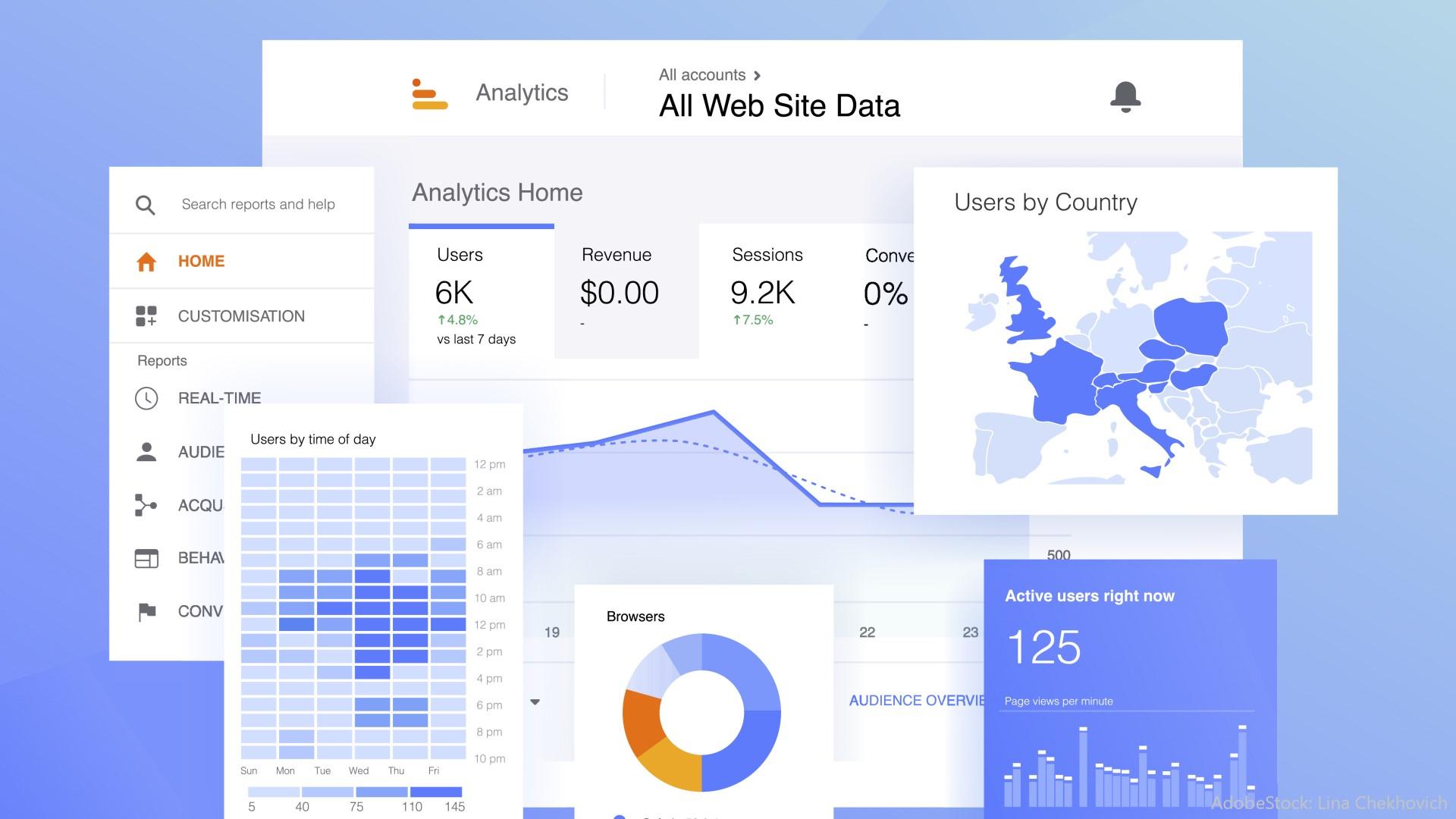
Leveraging Analytics for Data-Driven SEO Decisions
In the ever-evolving landscape of eCommerce, understanding your audience and their behavior is paramount. By leveraging analytics,you can transform raw data into actionable insights,enabling you to make informed SEO decisions that drive traffic and enhance your online store’s visibility. With the right tools at your disposal, you’ll be well-equipped to identify trends, optimize your content, and ultimately improve your rankings on search engines.
Utilizing analytics allows you to dissect your customer journey comprehensively. You can track key performance indicators (KPIs) such as:
- Organic Traffic: Understand which keywords and pages are driving traffic.
- Bounce Rate: Identify pages that might potentially be underperforming and need optimization.
- Conversion Rates: Measure the effectiveness of your SEO efforts in generating sales.
By analyzing these metrics, you can pinpoint opportunities for improvement. For instance,if a particular product page has high traffic but low conversions,this may indicate a need for better content or a more compelling call-to-action.A/B testing different elements on these pages can definitely help you determine what resonates best with your audience.
| Metric | Insight |
|---|---|
| Organic Traffic | Evaluate the effectiveness of your keyword strategy. |
| Bounce Rate | identify content that fails to engage users. |
| Conversion Rate | Measure the success of your SEO tactics in driving sales. |
Moreover, leveraging tools like Google Analytics, SEMrush, or Ahrefs allows you to monitor competitor performance. By analyzing competitors’ strategies, you can uncover gaps in your own approach and adapt accordingly.Keeping an eye on their keyword rankings,backlink profiles,and content strategies provides a comprehensive view of what it takes to compete effectively in your niche.
But analytics isn’t just about reviewing past performance; it’s also about forecasting future trends. By observing seasonal patterns and consumer behavior, you can proactively adjust your SEO strategy to align with market shifts. Utilizing predictive analytics can help you stay ahead of the curve, ensuring your online store remains relevant and competitive.
Ultimately, analytics empowers you to create a feedback loop where data informs decisions, and those decisions are monitored for effectiveness. This iterative process helps refine your SEO strategy over time, ensuring that every update and modification is grounded in real-world performance, leading to sustained growth and higher rankings.
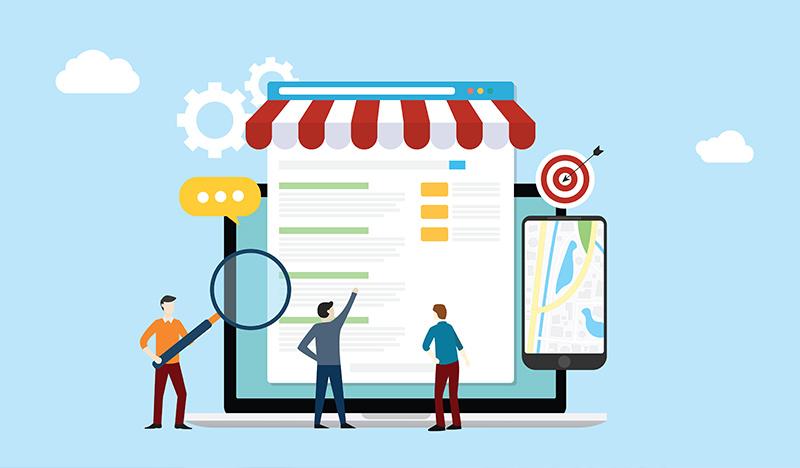
Enhancing Your Local SEO Strategy with Specialized Tools
In the competitive landscape of ecommerce, mastering local SEO can be a game-changer for your online store. Specialized tools can take your local SEO strategy to the next level, ensuring that your business stands out in local search results and drives more traffic to your website.
One of the most essential tools for enhancing your local SEO is a keyword research tool. Understanding which local keywords your target audience is using can help you optimize your product listings and web pages effectively.Look for tools that provide insights into search volume, competition, and related keywords specific to your geographical area.
Another critical component is a local listing management tool. These tools help you maintain consistency across various online directories, ensuring that your business information is accurate and up-to-date. Consistency in your NAP (Name, address, Phone Number) across platforms can significantly impact your local search rankings.
- Google My Business: Essential for managing your online presence on Google.
- Yext: Helps you manage listings across multiple platforms.
- BrightLocal: Offers comprehensive local SEO tools, including citation tracking.
Next, consider implementing review management software. Customer reviews not only enhance your online reputation but also play a crucial role in local SEO. Tools that enable you to solicit, monitor, and respond to reviews can help you build trust with potential customers. Positive reviews can boost your rankings in local search results, making it vital to have a strategy in place for managing this aspect of your business.
utilizing analytics tools can provide invaluable insights into your local SEO performance. Understanding metrics like traffic sources, user engagement, and conversion rates helps you assess what’s working and what needs improvement. Armed with this data, you can make informed decisions to optimize your local SEO strategy further.
| Tool Type | Recommended Tools | Key Features |
|---|---|---|
| Keyword research | SEMrush, Ahrefs | Localized keyword data, search volume insights |
| Local Listings | Google My Business, Yext | Manage listings, NAP consistency |
| Review Management | Podium, Reputation.com | Solicit reviews,monitor feedback |
| Analytics | Google Analytics,Moz | traffic analysis,performance metrics |
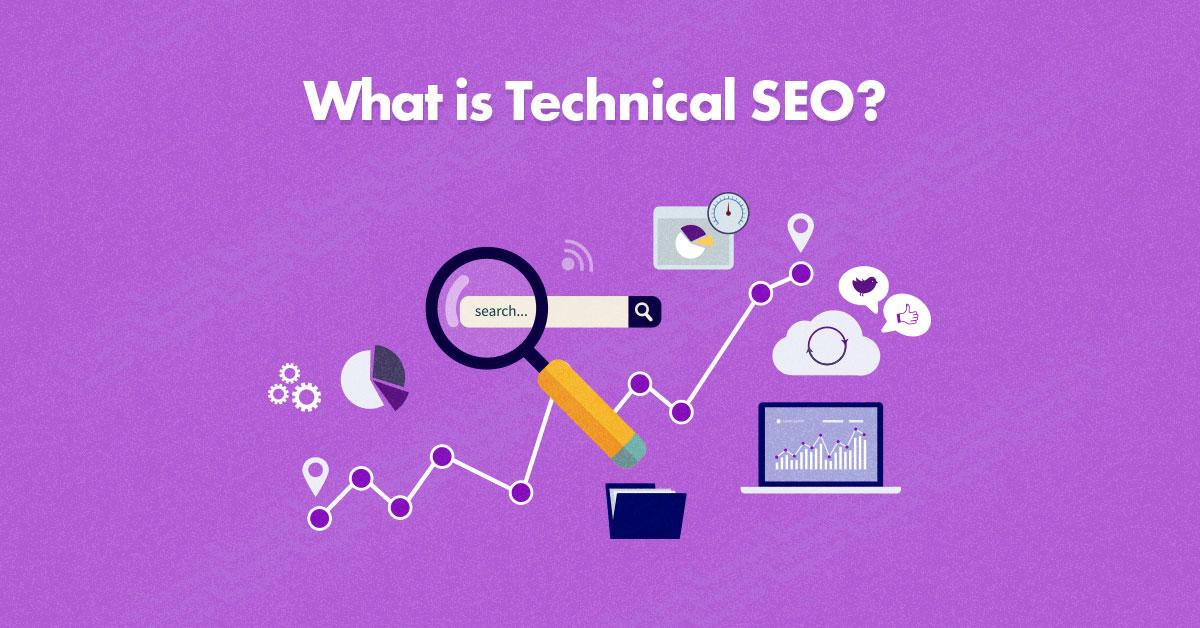
Making Sense of Technical SEO for Your Online Store
Understanding technical SEO is crucial for any online store aiming to enhance its visibility and performance in search engine results. When you have a robust backend structure, it sets a solid foundation for your content and products to shine. Here are some essential components to consider:
- Site Speed: Fast loading times are non-negotiable. Consumers expect pages to load quickly, and search engines reward those that do. Tools like Google PageSpeed Insights can help identify areas for improvement.
- Mobile Optimization: With an increasing number of shoppers using mobile devices, ensuring your site is mobile-friendly is vital. Responsive design and optimized images are key strategies to implement.
- XML Sitemaps: Creating an XML sitemap allows search engines to better understand the structure of your website. It helps in indexing your pages efficiently,enhancing your visibility.
- Structured Data: Incorporating structured data can enhance your listings in search results, providing rich snippets that can improve click-through rates. Tools like Google’s structured Data Markup Helper can assist with this.
Having a clear URL structure is another significant aspect of technical SEO. Clean URLs that are descriptive and include relevant keywords not only improve user experience but also aid search engines in understanding the context of your pages. Consider the following format:
| Current URL | Optimized URL |
|---|---|
| www.yourstore.com/product?id=123 | www.yourstore.com/widgets/123-widget-name |
Moreover, don’t overlook the importance of secure connections. Implementing HTTPS is no longer just a best practice; it’s a requirement. It ensures that your customers’ data is safe, builds trust, and can also positively impact your rankings.
regular audits are essential to maintain your technical SEO health. Tools such as SEMrush and Ahrefs can definitely help you track issues and monitor your site’s performance over time. Staying on top of your technical SEO allows you to adapt to changes in search engine algorithms and user behavior, ensuring sustained growth for your online store.
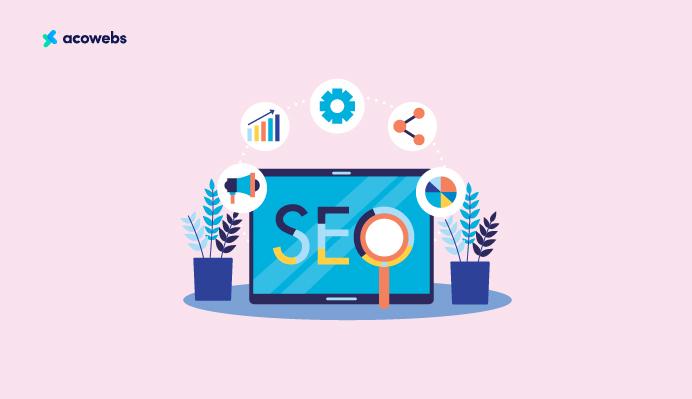
Integrating SEO Tools with Your Ecommerce Platform
When it comes to maximizing the performance of your online store, is a game-changer. These tools not only enhance your visibility in search engine results but also offer insights that can drive better decision-making and ultimately boost sales.
Many ecommerce platforms, like Shopify, WooCommerce, and Magento, provide seamless integration with various SEO tools. Here are some benefits to consider:
- Data-Driven Decisions: access to real-time data and analytics helps you understand customer behavior and optimize your offerings accordingly.
- Keyword Optimization: Tools enable you to identify high-traffic keywords relevant to your products, ensuring your content ranks where it needs to be.
- Site Audit Features: Regular audits help pinpoint technical issues that could be hindering your site’s performance.
For instance, integrating tools like SEMrush or Ahrefs with your ecommerce site can provide a wealth of information about your competitors. You can track their keyword strategies, backlink profiles, and performance metrics, allowing you to adjust your tactics and stay ahead in the game.
Moreover, content management becomes intuitive with tools like Yoast SEO for WordPress. This tool guides you in optimizing product descriptions, blog posts, and other content directly within your site’s dashboard. You can easily ensure that your content is not only appealing but also SEO-friendly.
| SEO Tool | Integration Capability | Key feature |
|---|---|---|
| SEMrush | Shopify, WooCommerce | Keyword Research |
| Ahrefs | Magento, Shopify | Backlink Analysis |
| Yoast SEO | WordPress | On-Page Optimization |
| Google Analytics | All platforms | Traffic Insights |
Lastly, don’t forget about the importance of mobile optimization. many SEO tools come equipped with features that assess your site’s mobile responsiveness. This is crucial as a significant amount of ecommerce traffic comes from mobile devices. Tools like Google PageSpeed Insights can help you identify specific areas for improvement, ensuring a smooth shopping experience for your customers.

Maximizing Your ROI with the Best Ecommerce SEO Tools
When it comes to enhancing your online store’s visibility, leveraging the right ecommerce SEO tools is crucial. These tools not only help you identify keywords that can drive traffic but also provide insights into your competitors’ strategies. Understanding which tools to use can significantly maximize your return on investment (ROI) and lead to increased sales.
Keyword research is the backbone of any successful SEO strategy. Tools like SEMrush and Ahrefs provide comprehensive keyword analysis that allows you to discover high-volume, low-competition keywords specific to your niche. By integrating these keywords into your product descriptions and blog posts, you can enhance your organic search visibility.
Another essential aspect is site audit and optimization. Tools such as Moz and google Search Console offer in-depth site audits that highlight technical issues affecting your store’s performance. These tools can identify broken links, slow loading times, and mobile usability issues, enabling you to fix them quickly and improve your site’s overall user experience.
Content optimization tools like Yoast SEO and Clearscope help you craft content that resonates with both search engines and your audience. They provide valuable insights on readability, keyword density, and related terms that can enrich your content strategy. This ensures that your product pages and blogs are not only optimized for search engines but also engaging for potential customers.
Don’t underestimate the power of competitor analysis. Tools such as SpyFu and SimilarWeb allow you to monitor what your competitors are doing right. By analyzing their backlinks, keywords, and traffic sources, you can adapt and refine your strategies to stay ahead in the competitive ecommerce landscape.This competitive edge can lead to significant improvements in your rankings and ROI.
tracking your results is imperative for ongoing success. Platforms like Google Analytics and Kissmetrics provide detailed insights into user behavior, conversion rates, and traffic sources. By regularly reviewing this data, you can make informed decisions, adjust your strategies, and ultimately maximize your ecommerce ROI.
| SEO Tool | Primary Feature | Best For |
|---|---|---|
| SEMrush | Keyword Research & Competitor Analysis | Finding profitable keywords |
| Ahrefs | Backlink Analysis | Enhancing link-building strategies |
| Moz | Site Audit | Identifying site issues |
| yoast SEO | Content Optimization | Improving blog posts & product descriptions |
Frequently Asked Questions (FAQ)
Q&A: 12 Best Ecommerce SEO tools to Boost Your Online Store Rankings
Q: Why is SEO vital for my ecommerce store?
A: Great question! SEO,or Search Engine Optimization,is crucial for any online store because it helps improve your visibility on search engines like Google. The higher you rank, the more likely customers will find you. With effective SEO, you can attract more organic traffic, increase your sales, and ultimately grow your business. Think of it as the foundation of your online presence!
Q: What should I look for in an ecommerce SEO tool?
A: When choosing an ecommerce SEO tool, consider features like keyword research, site auditing, backlink analysis, and on-page optimization. You’ll want a tool that fits your specific needs—whether you’re just starting out or looking to refine your existing strategy.User-friendliness, customer support, and pricing are also key factors to think about!
Q: Can these tools help with keyword research?
A: absolutely! Many ecommerce SEO tools come equipped with robust keyword research features. They can definitely help you discover high-volume keywords that potential customers are searching for. By targeting the right keywords, you can optimize your product descriptions and blog posts to improve your search engine rankings effectively.
Q: How can I track my SEO progress?
A: Most ecommerce SEO tools offer analytics and reporting features that allow you to track your progress over time. You can monitor your keyword rankings, organic traffic, and even your competitors’ performance.This data is invaluable as it helps you understand what’s working and what needs improvement, allowing you to adjust your strategy accordingly.
Q: Are there SEO tools that are specifically designed for ecommerce?
A: Yes! There are several SEO tools specifically tailored for ecommerce businesses. These tools understand the unique challenges online stores face, such as managing large inventories and creating optimized product pages. Some popular options include SEMrush, Ahrefs, and moz, among others. Each has its own strengths, so it’s a good idea to explore a few to see which fits your needs best.
Q: Can I use these tools without being an SEO expert?
A: definitely! Many of the best ecommerce SEO tools are designed to be user-friendly, making them accessible even for beginners. They frequently enough come with tutorials, guides, and customer support to help you get started. Plus, their intuitive interfaces can guide you through the optimization process without needing extensive SEO knowledge.
Q: How frequently enough should I use these tools?
A: Regularly! To keep your ecommerce store competitive, you should be using these tools at least weekly or monthly to review your performance and make necessary adjustments. SEO isn’t a one-time task; it’s an ongoing process. Consistent monitoring and optimization will yield the best results over time.
Q: Will using these tools guarantee higher rankings?
A: While these tools provide valuable insights and recommendations, they can’t guarantee higher rankings. SEO is influenced by many factors,including competition,algorithm changes,and user behavior. However, by utilizing the right tools and strategies, you significantly increase your chances of improving your rankings and driving more traffic to your store.
Q: What are some common mistakes to avoid when using ecommerce SEO tools?
A: one common mistake is relying solely on one tool for all your SEO needs. Each tool has strengths and weaknesses, so it’s best to use a combination for comprehensive insights. also, avoid keyword stuffing or focusing on the wrong metrics. Remember,quality content and a great user experience are just as critically important as your rankings!
Q: How do I know if an SEO tool is worth the investment?
A: Look for trials or free versions of the tools to test them out before committing. Check reviews and testimonials from other ecommerce businesses to gauge effectiveness. If the tool helps you save time, provides actionable insights, and leads to an increase in traffic and sales, it’s likely worth the investment!
Q: Can I implement SEO strategies myself, or do I need professional help?
A: You can absolutely implement many SEO strategies yourself, especially with the guidance of these tools. However, if you find it overwhelming or lack the time to dedicate, hiring a professional can be a good investment. They can provide expertise and advanced strategies tailored to your specific ecommerce needs.
Q: What’s the best way to start optimizing my ecommerce store for SEO?
A: Start with keyword research! Identify the terms your target audience is searching for. Then, optimize your product pages with these keywords in mind, focusing on titles, descriptions, and images. Next, leverage your chosen SEO tool to audit your site and identify areas for improvement. from there, you can build a content strategy that engages your customers and boosts your rankings.
Ready to dive into the world of ecommerce SEO? Equip yourself with the right tools, and you’ll be well on your way to boosting your online store’s visibility and driving sales.Happy optimizing!
in Conclusion
As we wrap up our exploration of the 12 best eCommerce SEO tools to elevate your online store’s rankings, it’s clear that investing in the right tools can make a world of difference. Whether you’re a seasoned pro or just starting your eCommerce journey, these tools are designed to simplify your SEO efforts, enhance your visibility, and ultimately drive more sales.
Remember,the digital marketplace is constantly evolving,and staying ahead means arming yourself with the right resources. By utilizing these tools, you’re not just optimizing your store; you’re setting the foundation for lasting growth and success.
So, why wait? Dive in, experiment with these tools, and watch your online store flourish. Your competitors are already leveraging these strategies, and the time to act is now. Get ready to boost your rankings, attract more traffic, and convert those visitors into loyal customers. Happy optimizing!

